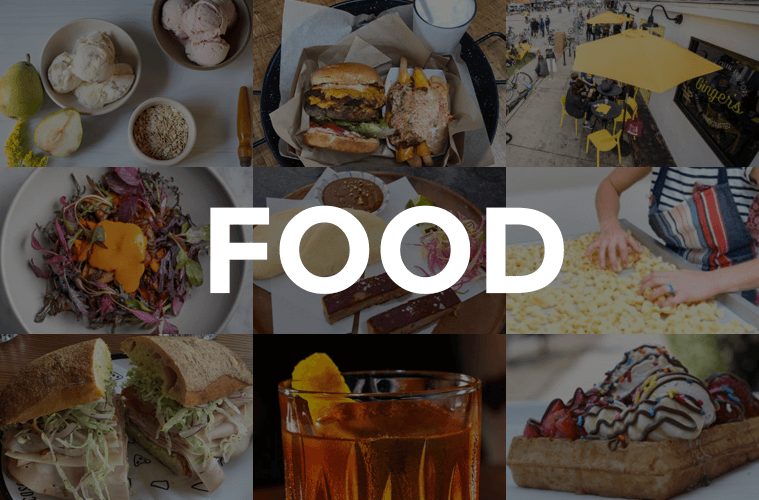Photos by Anne FishbeinToday’s subject is pljeskavica. Pljeskavica is a thin, Balkan hamburger, as big and round as a phonograph record, flavored with salt and onions and peppers and briefly cooked over a hot charcoal fire, a chewy meat patty that still has all its juice. Pljeskavica and its cousins can be found throughout the former Yugoslavia, feeding swarms of Serbian teenagers on a Saturday night or adding ballast to the table at a Dubrovnik café, but the outstanding examples of the breed are generally acknowledged to come from Bosnia-Herzegovina, where the Turkish Muslim influence has insinuated itself as firmly into the kitchens as it has into the culture. Bosnia is where you find the tastiest cevapi, grilled ground-meat capsules that are tucked into bread, the juiciest grilled lamb, the most succulent kebabs. It has been hard to think of Bosnia as much of a food destination in the last decade or so, but reliable people tell me that the charcoal-grilled pljeskavica in Sarajevo is still worth the trip. In Los Angeles, pljeskavica is served more or less exclusively at Aroma Café, a coffeehouse around the corner from the Westside Pavilion that serves probably the only Bosnian cooking in town. Aroma enjoys a certain local renown for its baroquely twisted bureks, tubular Bosnian pastries stuffed with spinach, cheese or meat. Its sandwich of salty beef “prosciutto‚” smeared with the Slavic sour cream called kajmak, has a following. If you grew up eating the Midwestern dairy dish sometimes known as farmer’s chop suey, Aroma’s lukmira, kajmak enriched with chopped scallions, will have a nostalgic appeal. The sarmas, stuffed vegetables, on the other hand, can be kind of weird — there is occasionally a sharp undertaste of tobacco smoke to the meat-and-rice filling; and although the sarma made with cabbage cured to a sort of sauerkraut sourness can be delicious, the stuffed peppers tend to collapse in on themselves. The feta cheese roasted with herbs in tinfoil is goopy, salty, grand. The meze platter is like a gleeful Slav’s take on the Lebanese meze platter, a giant plate paved with smoked Bosnian salamis, cheeses and various kinds of peppery cured beef instead of mere vegetable salads. When the chalkboard special is goulash — the chalkboard special is always goulash — you will find a plain, comforting version of the dish that is pretty much like the goulash in any Central European home. There is even a roster of Bosnian pastries, various tarts and strudels stuffed with apples, poppy seeds, sour cherries — and cream, if you are lucky enough to show up on the rare occasion krempita is on the menu. Aroma Café is a pleasant place to hang out on weekend afternoons, painted a sunny yellow, ringed with deli cases, peopled with Serbo-Croatian-speaking college students who cram shopping bags with cookies, soup mixes and cheeses from the café’s market shelves. A rear wall is lined with a gallery of Slavic celebrities. (The only one I recognized was Vlade Divac.) A small patio at the front of the restaurant, opening out onto the mini-mall parking lot, is crowded with sunglasses-wearing, sandwich-nibbling expats taking in the sun as if they were on a terrace at a ski resort. The café serves no alcohol (its menu at least nominally conforms to Islamic law), although nobody seems to mind if you import a bottle of Viognier or Syrah from the wine shop next door to go with your grilled meats. Because grilled meats — shish kebabs, lamb kebabs, chicken kebabs, mounds of cevapi — are what you are inevitably going to eat. Then there is pljeskavica. Tucked into its sturdy, focaccia-style bun, a steroidal construction that bears the same relationship to a supermarket roll that Barry Bonds’ left arm does to the musculature of a ballerina, Aroma’s pljeskavica is an awe-inspiring unit of consumption, almost as daunting in its appearance as it is difficult to pronounce. Outside of an El Tepeyac burrito, Oaxacan tlayudas and the kind of tenderloin sandwiches found in some precincts of central Iowa, pljeskavica may command more acreage than any other foodstuff on the planet. Imagine a sausage pizza built from sausage, a minced-beef Frisbee, a sizzling 50 Cent platter fabricated completely, entirely of meat. Eat enough of a pljeskavica, and you’ll know what an anaconda feels like when it passes an entire capybara through its system. Aroma Café, 2530 Overland Ave., West Los Angeles; (310) 836-2919, www.aromacafe-la.com. Open Thurs.–Tues. for lunch and dinner. Lunch for two, food only, $10–$20. No alcohol. Takeout. Lot parking. MC, V. Recommended dishes: meza platter, pljeskavica, apple pie.
Advertising disclosure: We may receive compensation for some of the links in our stories. Thank you for supporting LA Weekly and our advertisers.

